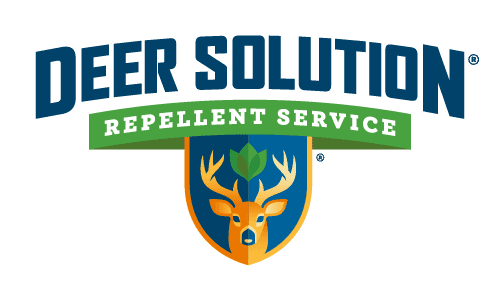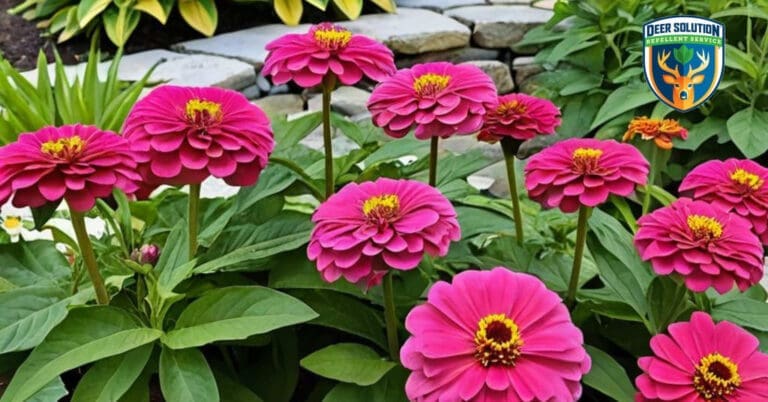Deer, with their insatiable appetite for a wide range of vegetation, often leave gardeners concerned about the safety of their beloved plants. A common question among garden enthusiasts is, “”Do deer eat zinnias?”” Understanding deer preferences and behaviors can help in creating a deer-resistant garden, ensuring your blooms remain unscathed. This is particularly important for those who invest time and effort into cultivating their gardens and wish to see their floral displays flourish without the threat of being devoured overnight.
Understanding Deer Feeding Habits
Deer are opportunistic feeders, meaning they consume a variety of plants depending on availability and season. They tend to favor tender shoots, leaves, and buds, particularly in spring and summer when these parts are most nutritious. However, their dietary patterns can vary based on regional flora and the availability of alternative food sources. In areas where food is abundant, deer may be more selective, whereas in regions with limited options, they may be forced to consume less preferred vegetation.
It’s also worth noting that deer feeding habits can change throughout the year. During the fall and winter, when food is scarce, deer are more likely to venture into gardens in search of sustenance. This seasonal behavior underscores the importance of understanding not only what deer prefer to eat but also when they are most likely to pose a threat to your garden.
Do Deer Eat Zinnias?
Zinnias, known for their vibrant colors and resilience, are generally considered less appealing to deer. While it’s not impossible for deer to nibble on zinnias, especially during times of food scarcity, these flowers are often not their first choice. The coarse texture and aromatic foliage of zinnias are likely deterrents, making them a favorable option for gardeners aiming to create a deer-resistant landscape. Additionally, zinnias come in a variety of shapes and sizes, which may also contribute to their relative safety from deer, as some varieties may be less accessible or less recognizable as food to these animals.
However, it’s important to remember that no plant is completely deer-proof. Hungry deer in search of food may still sample zinnias, particularly if they are one of the few available food sources in the vicinity. Therefore, while zinnias may be a safer bet, they should be part of a broader strategy to deter deer from your garden.
Creating a Deer-Resistant Garden
To successfully cultivate a garden that deer are less likely to devour, consider incorporating plants that deer typically avoid. Here are some strategies for enhancing your garden’s deer resistance:
- Choose Deer-Resistant Plants: Besides zinnias, plants like marigolds, lavender, and daffodils are less palatable to deer. Their strong scents and textures act as natural deterrents. Additionally, herbs such as rosemary, thyme, and mint can be effective in repelling deer due to their potent aromas.
- Layer Your Plantings: Surround more vulnerable plants with those that deer dislike, creating a protective barrier. This layered approach can make it more challenging for deer to access their preferred snacks. By strategically placing less palatable plants around the perimeter of your garden, you can create a first line of defense that may discourage deer from venturing further into your garden space.
- Utilize Repellents: Eco-friendly repellents can be effective in deterring deer. These repellents often mimic the scents of predators or unpleasant tastes, discouraging deer from grazing. It’s important to choose repellents that are safe for the environment and non-toxic to other wildlife, pets, and humans. Regular application according to the manufacturer’s instructions can help maintain their effectiveness.
Deer Solution’s Eco-Friendly Approach
While creating a deer-resistant garden involves careful plant selection and strategic planning, professional services can offer additional support. Deer Solution specializes in providing an eco-friendly repellent spraying service designed to help mitigate deer damage. Our proprietary, all-natural repellent is tailored to protect your landscape without harming the environment, families, or pets.
Utilizing monthly treatments, our certified experts evaluate each property to develop a customized protection plan. This personalized approach ensures that your garden receives the specific care it needs, promoting a thriving, deer-resistant environment. Our team stays abreast of the latest research in deer behavior and repellent technologies to ensure that our services remain effective and environmentally responsible.
While addressing deer-related landscape challenges can seem daunting, Deer Solution offers a specialized approach grounded in our eco-friendly ethos and decades of expertise. Exploring sustainable solutions leads us to consider how professional services, like those offered by Deer Solution, provide tailored support for maintaining the health and beauty of your landscape. With our commitment to customer satisfaction and ecological stewardship, we strive to offer services that not only protect your garden but also contribute to the well-being of the local ecosystem.
Ultimately, the goal is to enjoy a beautiful garden that thrives in harmony with local wildlife. By understanding deer feeding habits, choosing the right plants, and possibly enlisting the help of professionals like Deer Solution, you can create a vibrant, deer-resistant garden that stands the test of time and becomes a source of pride and joy.








